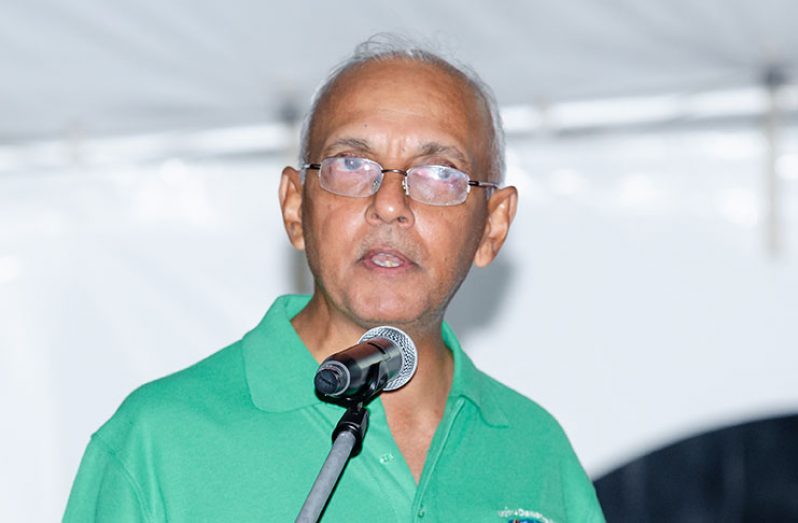– Minister Bulkan
MINISTER of Communities, Ronald Bulkan on Monday emphasised the importance of local governance and the stance of government to ensure Guyana reaches its fullest potential.
Decentralised governance, he said, is a main plank of government since the government believes it will take the country forward.
The minister said Guyana’s Constitution states that Local Government Elections (LGE) should be held no later than every three years.
“It is my belief that this decentralised model of governance that is located in our Constitution is the product of those internal struggles the first set of our post-colonial leaders would have inherited,” Bulkan said.
There is no ambiguity in the Constitution that outlines the importance of LGE, he said. “But rather, it contains piercing precision as to the role of LGE in the government’s architecture,” he explained.
However, even though the model of governance is clearly outlined in the Constitution, Bulkan pointed out that the previous administration completely disregarded it. LGE, he said, became akin to a foreign language to Guyanese, prior to 2015, which stifled the growth of the country.
“The approach to governance, the records are there to show that our predecessors were wedded to a centralist approach to governance, as opposed to a decentralised approach to governance. It was essentially, and in its simplest form, a desire to hold power. A desire for power to reside at the centre, and on that basis, govern Guyana from the capital and to make decisions for far-flung areas of our country… six consecutive local government elections were not held as legally due. And that in itself is ample proof and testimony, to the mindset of our predecessors, that they saw little or no relevance to disperse power, but rather to concentrate it at the centre,” Bulkan stressed.
He said it only resulted in insufficient attention being paid to local issues. However, he pointed out that in 2015, in efforts to restore the commitment to the Constitution, the government placed LGE on their parliamentary agenda.
“It is my belief that President Granger recognised the failings coming at the end of a long and illustrious career in public service, of being wedded to the centralist approach, and that the crisis in our communities was as a result of adherence to that failed model. This is why I believe he made this one of the government’s principle planks. We no longer have to depend heavily on the voice from the centre,” Bulkan said.
Even though LGE has been restored, the minister said it will take a few electoral cycles for persons to fully grasp its role.
“It will take a few electoral cycles for persons to understand that there is a huge difference between voting for a President and who controls your community. Politics should be taken out of that equation and the focus and emphasis should be on the community-minded persons who have a capacity to be able to put the interest of residents in those respective communities first, and to put politics aside,” he alluded.
The minister also mentioned that not only was the government committed to restoring authority, but expansion of the areas covered under local government.
In particular, the townships: Mabaruma, Bartica and Lethem. He said that initiative represents the largest municipal extension in almost four decades.
“So in keeping with the agenda of decentralised governance and stronger regions, those areas being the administrative centres of their regions, the hinterland regions, were the first to have their status upgraded to township status. So that they can play a lead role, in the development of their respective regions,” Bulkan said.
He added: “This was not merely a paper transaction.” But huge investments were made. Placing power within the hands of community leaders, he said, showed a sense of ownership being acknowledged by the people. Now, the people are being empowered and several parts of Guyana would have experienced a dramatic physical transformation.
All this, he attributed as the effects of local governance.




.jpg)









